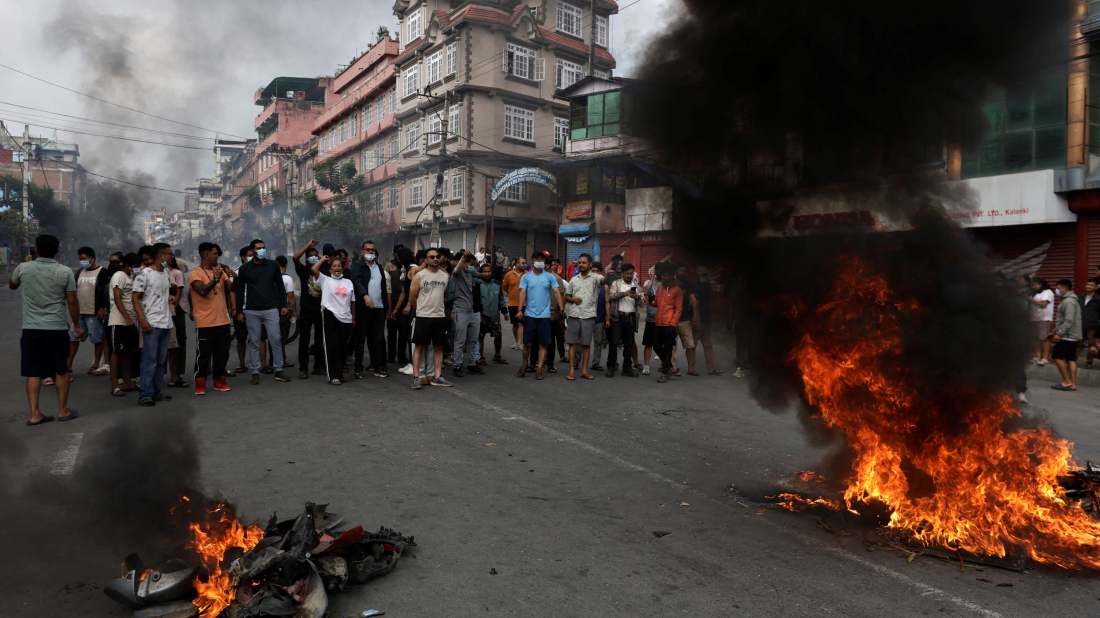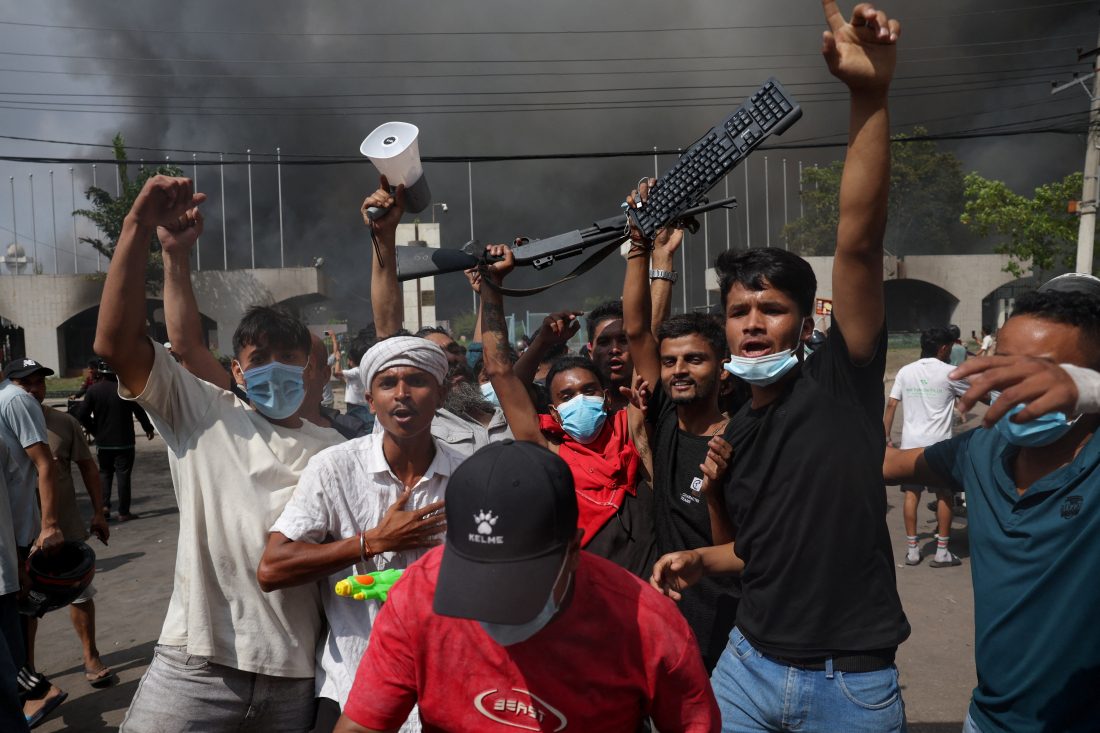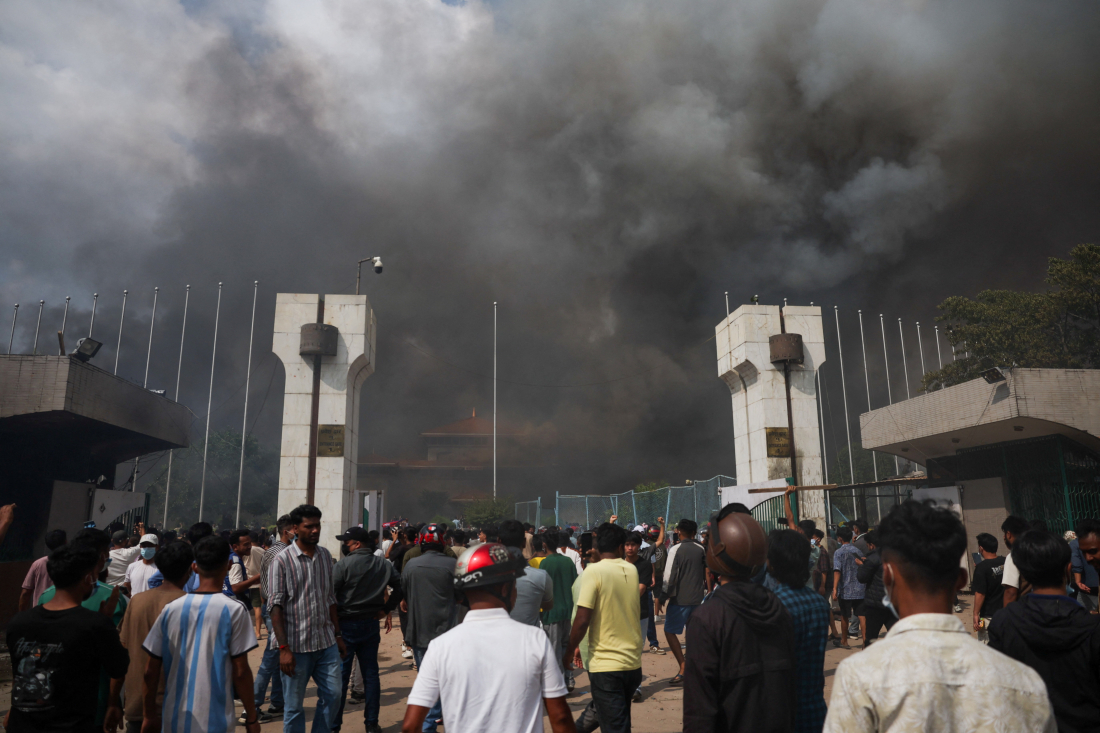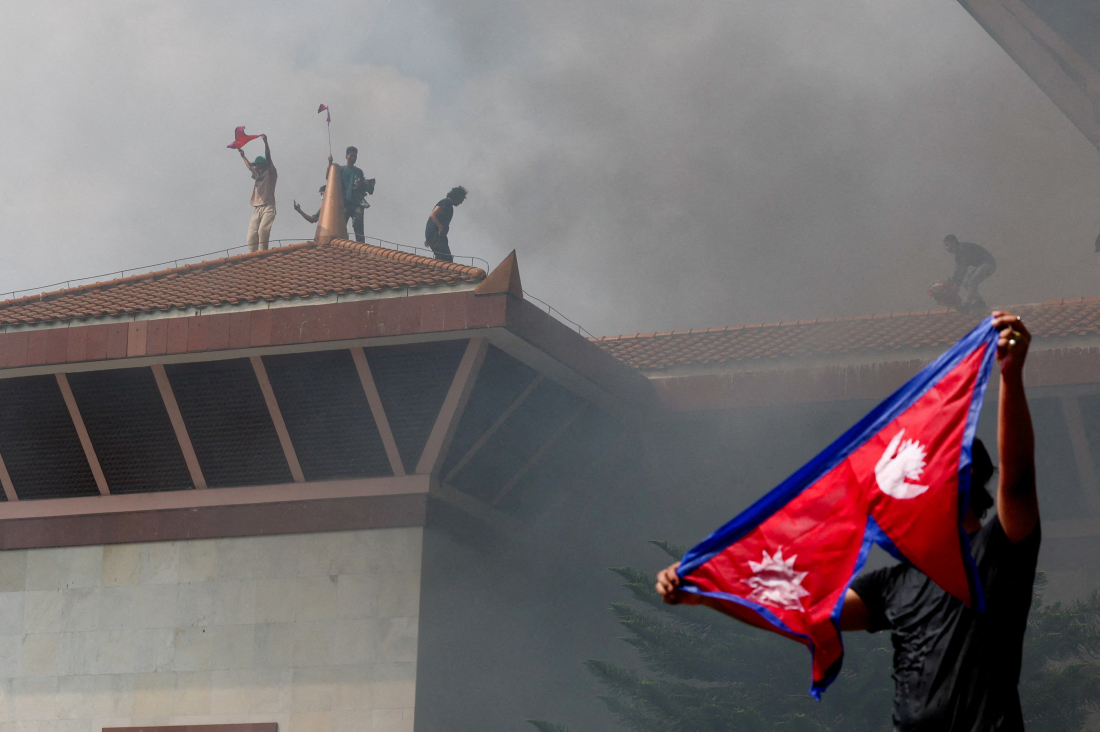live Israeli military says it has launched fresh strikes on Tehran and Beirut: All the latest news on the Iran strikes
The Israeli military has begun a new wave of strikes on Tehran, it said late on Monday. The strikes came after it issued...

Nepal Prime Minister K.P. Sharma Oli resigned on Tuesday as anti-corruption demonstrators defied an indefinite curfew and clashed with police, a day after 19 people died in violent protests triggered by a social media ban.
Local media report that Nepalese President has started the process of forming a new government after protesters stormed and set fire to parliament, leading to the resignation of Prime Minister K.P. Sharma Oli.
Oli's government lifted the ban after protests intensified on Monday, with police firing tear gas and rubber bullets at protesters trying to storm parliament. Nineteen people were killed and more than a 100 were injured in the unrest.
But there was no let up in the protests on Tuesday, forcing Oli to quit and plunging Nepal into fresh political uncertainty.
The unrest is the worst in decades in the poor Himalayan country that is wedged between India and China and has struggled with political instability and economic uncertainty since protests led to the abolition of its monarchy in 2008.
"In view of the adverse situation in the country, I have resigned effective today to facilitate the solution to the problem and to help resolve it politically in accordance with the constitution," Oli said in his resignation letter to President Ramchandra Paudel.
An aide to Paudel told Reuters the resignation had been accepted and the President had begun the "process and discussions for a new leader".

The army posted an appeal on X asking people to "exercise restraint" since Oli's resignation had been accepted.
But anger against the government showed no signs of abating, as protesters gathered in front of parliament and other places in the capital Kathmandu, in defiance of an indefinite curfew imposed by authorities.
The protesters set fire to tyres on some roads, threw stones at police personnel in riot gear and chased them through narrow streets, while some looked on and shot videos of the clashes on their mobile phones as thick black smoke rose to the sky.
Protesters also stormed the residence of President Ram Chandra Paudel and set it on fire according to Indian broadcaster NDTV which showed footage from social media appearing to capture demonstrators ransacking the presidential home.
Witnesses also said that protesters were setting fire to the homes of some politicians. Local media reported that some ministers were plucked to safety by military helicopters.
Pushpa Kamal Dahal, leader of the Communist Party of Nepal (Maoist Centre), Minister of Communications and Information Technology Prithvi Subba Gurung, and former Interior Minister Ramesh Lekhak, who resigned following the protests, were effected by the protests.

Main airport shut
Kathmandu airport, Nepal's main international gateway, was closed with immediate effect as smoke from fires nearby set by protesters could endanger the safety of aircraft, the Civil Aviation Authority of Nepal said.
"We are still standing here for our future ... We want this country corruption-free so that everyone can easily access education, hospitals, medical (facilities) ... and for a bright future," protester Robin Sreshtha told Reuters TV.
"The protest was intended, first and foremost, against the rampant corruption in government," a protester said in an email to Reuters, signing off as 'A concerned Nepali citizen'.
Young Nepalis had been putting out social media posts about the "luxurious lives of the families and children of corrupt politicians and civil servants" and the government responded by clamping down on social media platforms, the email said.
Neighbour India, which is home to hundreds of thousands of Nepali migrant workers, said it hoped that all concerned will exercise restraint and resolve issues through talks.
A joint statement by the embassies of Australia, Finland, France, Japan, South Korea, UK, Norway, Germany, and the U.S. in Nepal urged all parties to exercise maximum restraint, avoid further escalation and ensure fundamental rights are protected.

Monday's events
The ban on social media platforms provoked widespread anger, particularly among young people. Members of “Generation Z” took to the streets carrying banners reading “Stop corruption, not social media,” demanding freedom of speech and greater political accountability.
What began as demonstrations quickly descended into violent clashes. In Kathmandu, police used tear gas, rubber bullets and live ammunition. Local media report at least 19 people killed and dozens injured.
The unrest spread to the regions, with protesters setting fire to the homes of President Paudel, Prime Minister K.P. Sharma Oli and several ministers, as well as attacking the offices of leading political parties.
Facing its biggest crisis of confidence in years, the government imposed a curfew, temporarily closed schools and restored access to social media. However, tensions remained high as protesters escalated their demands, calling not only for internet freedom but also for political reforms in a system they say has long been plagued by corruption and authoritarian practices.
International observers have described the events as a “Generation Z revolt,” warning that if the authorities fail to enter dialogue, the crisis could spiral into a full-scale political confrontation.
Critics said it was an attempt to throttle free speech, a charge the government denies, citing misuse of social media to spread disinformation and commit fraud, among other concerns.

Follow the latest developments and global reaction after the U.S. and Israel launched “major combat operations” in Iran, prompting retaliation from Tehran.
Saudi Arabia’s state oil giant Saudi Aramco closed its Ras Tanura refinery on Monday following an Iranian drone strike, an industry source told Reuters as Tehran retaliated across the Gulf after a U.S.-Israeli attack on Iranian targets over the weekend.
The Kremlin is utilising the recent United States and Israeli military strikes on Iran to validate its ongoing war in Ukraine. Russian officials are pointing to the escalation in the Middle East as evidence that Western nations do not adhere to international rules.
The Middle East crisis intensifies after the deadly attack on the compound of the Supreme Leader of Iran Ali Khamenei on Saturday that killed him, other family members and senior figures. Iran has launched retaliatory strikes on U.S. targets in the region.
Ayatollah Alireza Arafi has moved into a pivotal constitutional role following the death of Supreme Leader Ayatollah Ali Khamenei, becoming the clerical member of Iran’s temporary leadership council under Article 111 of the Constitution of the Islamic Republic of Iran.
Start your day informed with AnewZ Morning Brief. Here are the top news stories for the 3rd of February, covering the latest developments you need to know.
Canadian Prime Minister Mark Carney arrived in Australia on Tuesday (3 March), aiming to bolster relations between the two so-called "middle powers" amid what he has called a "rupture" in world order.
Former U.S. President Bill Clinton told lawmakers that President Donald Trump told him he had "some great times" with convicted sex offender Jeffrey Epstein before their relationship soured, according to a video released on Monday (2 March).
The U.S.-Iran crisis has entered its third day, with further strikes reported across the Middle East and the death toll rising. Oil prices have surged to levels last seen during the Covid-19 pandemic, raising fears of economic disruption and higher prices worldwide.
The UK said it's allowing the U.S. to use its bases for defensive strikes against Iran amid escalating missile attacks, after a suspected drone strike hit a British airbase in southern Cyprus, causing limited damage.
You can download the AnewZ application from Play Store and the App Store.

What is your opinion on this topic?
Leave the first comment